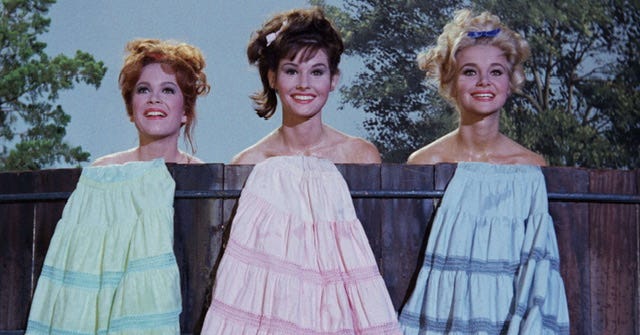Bleeding Through
After the Saskatchewan River Incident, I wasn’t Mommy’s little girl anymore. I watched her at a distance. I didn’t tell her things. It was like living in a lion cage with a long bench between the two of us.
She didn’t know that I walked home from Garneau Junior High at lunchtime to read novels and watch Petticoat Junction on TV. I made grilled cheese sandwiches using the iron and ironing board like a sandwich press. You wrap the buttered bread and cheese in foil and press down, evenly. It sizzles and smells wonderful.
My mother wouldn’t be home until six. She might walk in and crack me across the cheek, she might announce she wanted to curl my hair in cloth rags like Shirley Temple, she might walk into her room and close the door.
But the daytimes were my time at home and they were quiet. I loved how warm it was inside closed doors in Edmonton. They had figured out the heating thing in Alberta, unlike our apartments in California. I could stand in our apartment at the ironing board, war…



